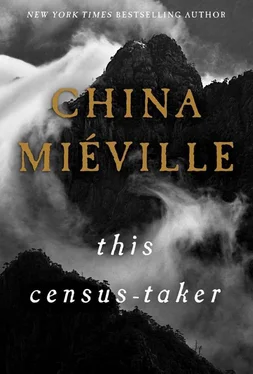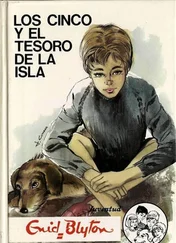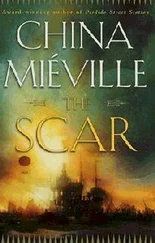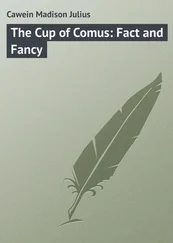I tried to correct what I’d said that the woman was repeating, and could only swallow.
I’d heard a rhythm. I’d gone up to the top of the house, the space with all the air, and found people already there. By the bridge the woman looked at me and I concentrated, and I didn’t think what I’d seen was my mother killing my father, as I’d said. I went back to it. Her face, my mother’s face, blank and tired, yes, but if seen only for an instant, glimpsed. And not her hands coming down but my father’s.
“No,” I said. “My father. Someone. My mother.”
It had been my father with his back to me. I thought that as carefully as I could through all my shaking and gasping. Him holding someone. Her face I couldn’t recall.
My father’s back had been to me. It hadn’t been my mother’s back. That blood had been there, the blood I still imagined on my hands. I remember it as very bright and dark at the same time, because it was newly come into the light while the paper it colored was so faded.
I’d screamed until my father turned to regard me. That was what I’d seen: him gasping from his efforts.
He stared at me and I ran away.
Some mornings my mother would give me lessons in letters and numbers. She didn’t have many books but she’d place before me one of those she did and sit across the table from me and point without speaking at certain words, waiting as I struggled to say them. She would correct me when she had to and sometimes impatiently prompt me, sound out words at which I’d failed. This was in another language than the one in which I write now.
My mother was a muscular woman with dark gray skin folded on her forehead and around her eyes. Except when she was digging she left her long white-flecked hair loose so it draped around her face. I thought her beautiful but after she died if I ever heard anyone discuss her in more than brief passing the adjective they used was strong —or, once, handsome .
Mostly what my mother did was tend the sprawl of up-and-down land around our house. She’d separated this sloping garden into seemingly formless plots with boundaries she marked with stones. When she saw how they confused me, she told me she was following contour lines.
She would clear blown sticks and leaf-matter from between them, and dry it to feed our fire or the generator in its little housing for when we wanted electricity. She had an outside dress in which she kept seeds of different kinds. I’d sit quietly on one of several suitable stones and watch her reach into her many pockets to sow handfuls in the grit she tilled. Sometimes she smiled in a cold way at the anxiety her random methods raised in me.
Once she stood straight and leaned on her hoe and looked right at me and said, “Last night I had a dream of planting bits of rubbish right here and watering them and making them grow. Growing a dump. When I say, ‘I had a dream’ I mean I wanted to, not ‘It came into my head while I was sleeping.’ ”
My mother would twist unpleasant figures out of wire and wood and put them up to frighten the birds. My father made them too, and his were finer than hers, but none of them intimidated the crows very much, and my mother and I would often have to run out of the house windmilling our arms and shouting so the big birds would lurch away from the seeds a while, less out of fear than a kind of languorous contempt.
Out of that thin dusty ground my mother pulled hybrids and rarities as well as beans and gourds and so on. Some of what she grew we ate; some she sold or bartered with the shopkeepers on the bridge or in the bridgetown, for all kinds of things. Some she exchanged for more seeds that she would fold back into the earth.
—
Mostly we kept to our own patch of hill, as did everyone who lived above the town: the path below us and all the ruts cutting crosswise from height to height ran carefully so as not to get too close to any dwellings. Yes, at rare times, almost, it felt in later years, out of some obligation to be naughty, a duty to something, I might walk a long while through complex country, creeping close enough to another uphiller’s place below our own to see them from the shelter of bushes, to watch crooked women, sisters raising pigs in a barn, to see the gnarled man on his plateau out of sight of the second hill performing precise tasks in his yard, calibrating gauges on old machines the moving parts of which he would daub with grease. These other houses looked so much like my own that they roused in me imprecise suspicions, as if, I would later have the words to think, they were a set.
There was supposed to be a holy old woman or man living in a cave no more than an hour’s walk from our door, just below the zenith, and I remember once glimpsing the beat of a brown cape like a shaken sheet but whether that cloth was worn on bony vatic shoulders I can’t say. I can’t even say if I truly saw it.
I’ve observed real ascetics since, their mortifications and their dens, and I know now how pinchbeck was the self-exile I saw, if I saw anything, if there was anything to see.
The most common trace of those who lived closest to us was the smoke from their fires, from when they made food, or destroyed their rubbish, which was not how we disposed of ours.
My father was a very tall pale man who seemed endlessly startled, who moved in jerks as if trying not to be caught out. He made keys. His customers would come up from the town and ask for the things for which people usually ask — love, money, to open things, to know the future, to fix animals, to fix things, to be stronger, to hurt someone or save someone, to fly — and he’d make them a key.
I was put out of the house during these transactions but would often creep around the perimeter to crouch by the window of his workroom to hear the discussions, and even to peek in. More than once my mother, prodding at her plots, her hair up in the yellow scarf that was the brightest thing I ever saw her wear, observed me huddled by the sill. She never stopped me eavesdropping.
My father would take notes as people falteringly told him their needs. On rough brown paper he would start to sketch the outlines of a key’s tines and troughs in graphite and ink, correcting the lines as his customers spoke. He’d continue when the visitors had left, sometimes drawing for hours, almost always finishing his rendition in a single sitting, even if it meant he was working until sunup.
The next day he’d go and start our generator droning, and, returning, would pin the finished image by his table, pinch slats of metal in his vise and with minute movements and slow care, stopping frequently to refer to the picture, cut them with a screaming electric blade run for a few seconds at a time, dimming the downstairs lights, or by hand with the taut steel-wire saws I was also forbidden to touch. My father was strong despite his scrawny arms. He cut and shaped.
Behind his workbench he kept glass jars containing handfuls of various dusts. A few were deep colors; most were varieties of brown and dirt gray. He’d dip his fingers in one at a time, rub the emerging keys, polishing them with the powders and with the sweat on his thumb. I never saw him replenish any containers: he only ever used a trace.
The work exhausted him, even more than you might think. When he finished he’d hold up what he’d made and blow it clean and eye it thoughtfully, the key shining, he a dirty mess.
Sometimes days later those who’d commissioned him would come back to take what they must have paid for, though often not in the tin and paper money of the town, of which there was rarely much in our house; sometimes he would descend to bring the key to them. I never saw any customer more than once.
Читать дальше












